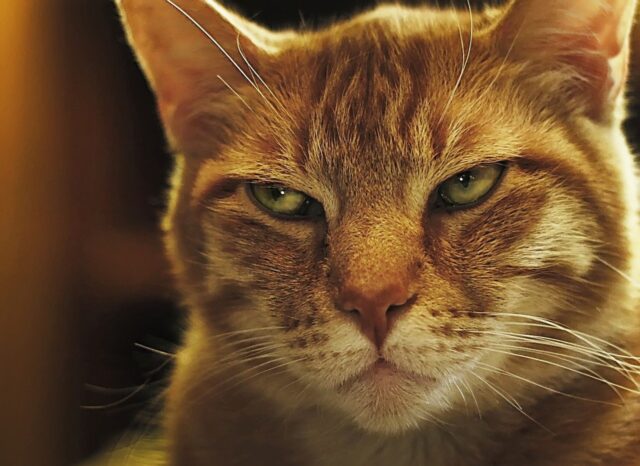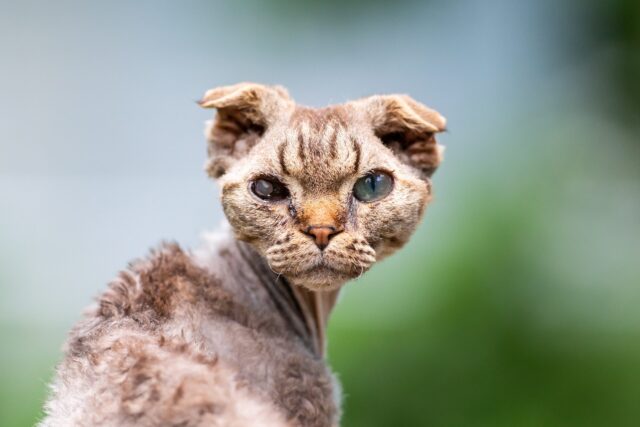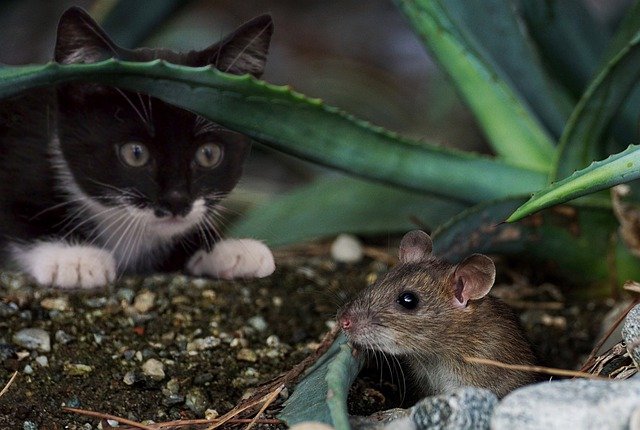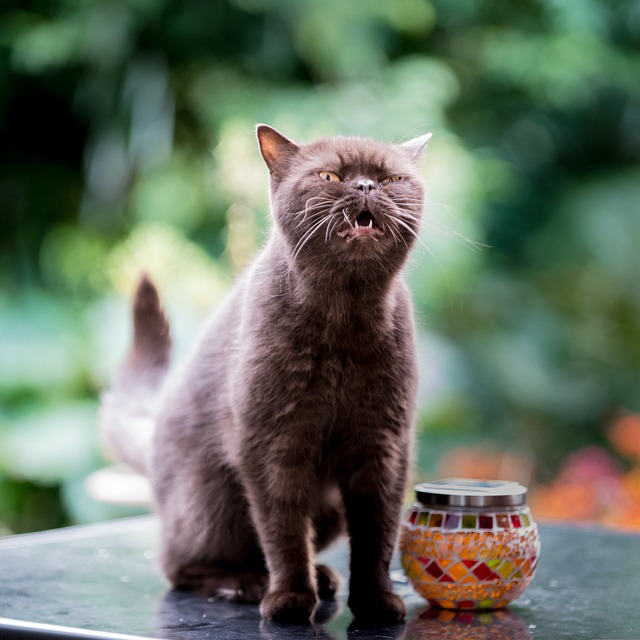Greetings, my pawsome human minions.
Forrest Wisewhiskers, your cat of comprehension, is here again with a topic that stinks…uncovered cat poop.
Imagine this, if you will. You’re enjoying your day, doing whatever humans like to do, and you catch a whiff wafting from the litter pan that’s strong enough to singe your nose hairs. Now, you know kitty poo stinks, but this is some kind of intense, so you check the pan and find a big steaming pile of uncovered cat poop.
I know, yuck. I myself am a staunch coverer, but some kitties aren’t. For some, it’s just a quirk because they’re comfy in their environment. And for others, they harbor one of several reasons for not burying their poop. Take Kevin TwoToe, for example.

Keven TwoToe Doesn’t Care If You Have To Cover His Poop
Keven TwoToe was the most formidable and roughest cat I ever met. Not only was he the Tom-iest of Tom cats, if you know what I mean, his attitude was just as big as his big furry nuggets. He’d lived a hard life on the streets of a metropolitan sprawl, and his years there had left him with a cloudy eye, missing an ear, and only two toes on his left front paw. He said they went missing in the belly of a guard dog. That same incident had left a strip of his foreleg without fur all the way down to the missing digits. And on that bared skin, I kid you not, Kevin TwoToe wore a mouse skull and crossbones tattoo.
But, for all his grizzle, his tail was the most impressive thing you’d ever seen; a long plume of feathery fur you’d only expect to find on the showiest of the purebreds. And if he ever took you under his wing, you were Kevin TwoToe’s buddy for life. I am proud to say he called me friend, and I often wonder where he is now.

But for all I admired this tough tom, Kevin TwoToe never covered his poo. And he sure laid some stinkies…
He offered the two-toe situation as the reason he didn’t; said the scar tissue where his toes were missing was too sensitive to scratch with. I pointed out he had another fully intact front foot, to which he shrugged and said, “Who’s going to challenge me? Besides, the humans will do it.”
He Makes Valid Points, But Smelly Ones All the Same
His points were valid, but unlike him, I can’t leave my business uncovered. Instinct tells me I must hide away that which bears my scent signature. When living in the wild, cats cover their excrement to keep safe and remain undetected. By burying their business, cats tamp down the odor that reveals just who and what they are, protecting them from predators while not scaring away the skittering prey that serves as dinner.

So, in the house, cats may not cover their litter box deposits because there isn’t any prey roving around to be scared away and no significant bad critters lurking and looking to hurt a cat. But for other kitties, like Kevin TwoToe, covering comes with a cost.
The Reasons Some Cats Don’t Cover Their Poop
Sensitivity Issues Can Stink
Kevin TwoToe listed paw sensitivity as his reason for not burying his poop, which is valid. Some kitty feet are extra sensitive, whether it’s from injury or just by their design. If your little paw prince or princess doesn’t care for their litter because it feels funny on their feet, try a different material. Gone are the days when cat parents were stuck with only stinky, dusty clay litters that couldn’t be scooped. Now, from pine to silica gel, there’s quite a range of litter materials to choose from, and hopefully, you’ll find the one that doesn’t irritate your cat’s feet.
Pain in the paws isn’t the only sensitivity cats can experience with litter. Felines have sensitive noses, and cat litter with added fragrances can prove overwhelming, driving your kitty to get in and out as fast as possible. For cats with allergies, respiratory issues, and plain old picky sniffers, stick with unscented cat litter to encourage burying.
RELATED: How To Make The Right Choice With Cat Litter

Medical Issues Can Be a Pain
Like cats who urinate or defecate on the floor, some kitties who don’t cover in the litter pan may be trying to communicate illness or pain. If your cat has always been one who gives a courtesy cover but suddenly stops, maybe it’s time to visit the vet and check that everything is okay. If you see blood or your cat had diarrhea, make an appointment sooner than later.
Senior Cats Don’t Dig Their Pan
Older cats with sore joints and fatigue issues might find climbing into a high-sided litter pan a taxing endeavor, which might lead to going and not covering. If your old man or lady kitty is struggling with getting in the pan, offer them one with low sides or entrances. Purrhaps they thank you with a return to covering their stinky business.
Kittens Who Don’t Know
Kittens sometimes lose their moms early in life. And without a mother to teach a kitten how to cat, orphaned kittens might need a little education regarding litter pan etiquette. To help your kitten learn, swoop in and use your scoop to cover the poo while they’re watching.
When your little one grasps the concept and begins to cover, shower them with praise and rewards to reinforce this behavior. It’s important to encourage and support your baby’s progress in learning new skills.
Territorial issues can lead to uncovered poop, especially if your cat is in a power struggle with another feline family member. Helping them resolve conflicts and bond with each other can improve their behavior.
Consider the size of your cat when choosing a litter box. A larger cat may need a bigger box to comfortably cover their waste. Providing enough space for your cat to move around can encourage them to bury their poop.
A clean litter box is essential for your cat’s comfort. Scoop the box regularly and change the litter monthly to ensure a fresh and inviting environment for your cat to do their business.
Feeling safe and secure in their home can also influence your cat’s behavior. If they feel relaxed and content, they may be less inclined to cover their poop. Creating a peaceful and nurturing environment for your furry friend can help them feel at ease.
After taking care of your cat’s litter box needs, don’t forget to attend to their other needs, such as feeding and playtime. Keeping your cat happy and healthy is essential for their overall well-being. paragraph in a more concise manner:
Please be advised that the meeting scheduled for next Monday has been rescheduled to Wednesday due to unforeseen circumstances. Thank you for your understanding.

